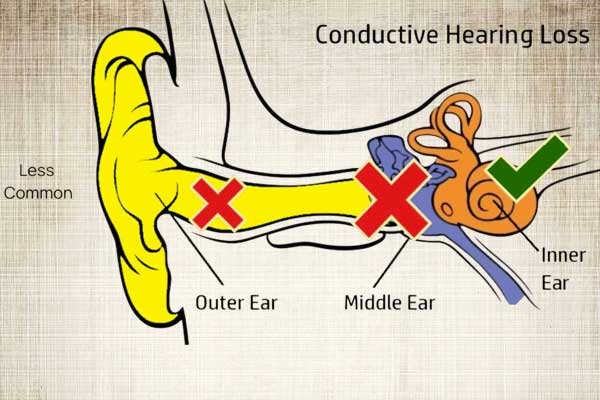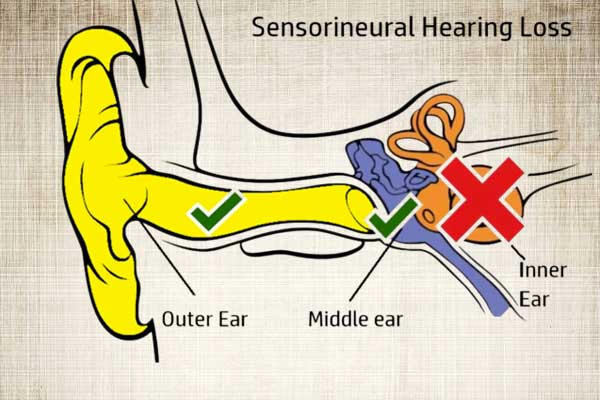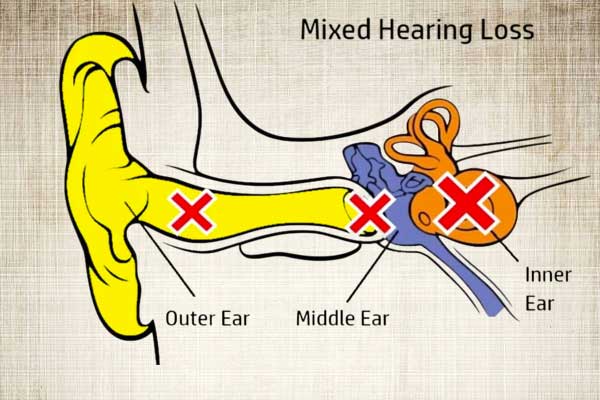Hearing Loss
Hearing loss is a partial or total inability to hear sounds in one or both ears. It can affect people of all ages and may range from mild to profound. Here’s a clear breakdown
Degree of Hearing Loss
- Mild: Difficulty hearing soft sounds or following speech in noisy places.
- Moderate: Need to ask people to repeat themselves; may use hearing aids.
- Severe: Can hear very little without amplification.
- Profound: May not hear anything; may rely on lip reading or sign language.
What you need to know
Types Of Hearing Loss
🧠 Symptoms
- Muffled hearing
- Trouble understanding speech
- Asking others to speak more slowly or loudly
- Turning up the volume on devices
- Withdrawal from conversations
- Ringing in the ears (tinnitus)
🩺 Causes
- Aging (presbycusis)
- Loud noise exposure
- Infections (e.g., meningitis, otitis media)
- Earwax buildup
- Ototoxic drugs (damaging to the ear)
- Genetic factors
- Head trauma
🧑⚕️ Diagnosis & Treatment
- Hearing tests (audiometry) by audiologists
- Treatments:
- Hearing aids
- Cochlear implants
- Surgery (e.g., for tumors or bone issues)
- Communication strategies (lip reading, sign language)



